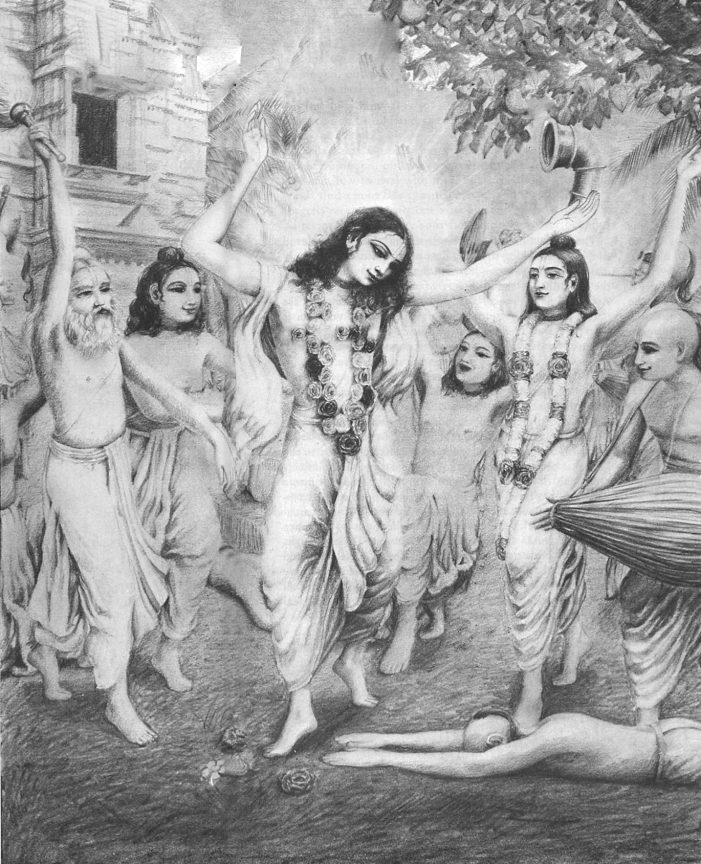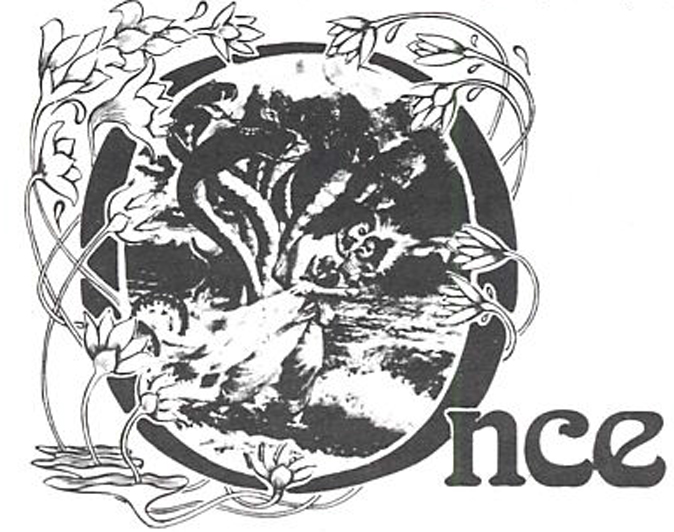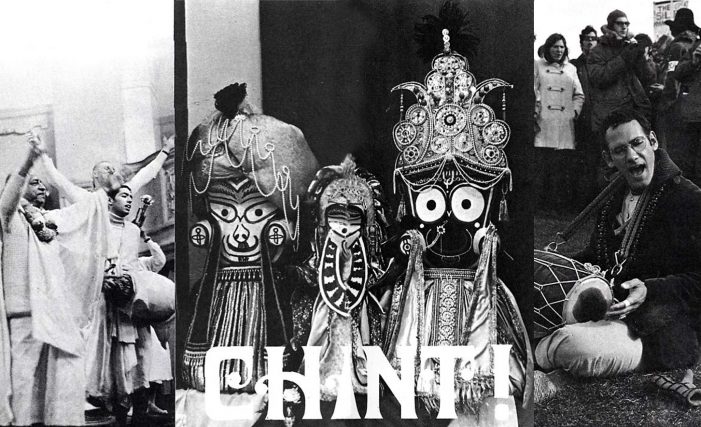Can You Dream Hare Krishna?
If you practice in dream that you are chanting Hare Krishna you are dancing in the temple you are seeing Lord Jagganath you are seeing Krishna you are talking with Swamiji or your friends, it is simply practice.
If you practice in dream that you are chanting Hare Krishna you are dancing in the temple you are seeing Lord Jagganath you are seeing Krishna you are talking with Swamiji or your friends, it is simply practice.
The neophyte devotee has no capacity to approach the Absolute Personality of Godhead. By submissively serving the bona fide spiritual master who is a bridge between the Lord and the neophyte, he is automatically fixed up into the transcendental service of the Lord.
O Dear Gopis! O purest of the Pure So dear to Krishna, Who can help you look for Him, When suddenly He leaves The Sacred Rasa Dance, Black Cloud adorned with lightning, Disappearing in the dark Tangled wood.
This Lord Krishna Blackish, plump Standing on the shoulders of His pals, His two hands around the covered bowl of butter hanging on ropes from the ceiling, has stolen my understanding.
Have I ever smelled the air so pure as on this night? So clear, so soft, so fragrant… Ah, but I must wash some dishes for Krishna… In that small task all the wonders of this night are revealed to me. I am so fortunate to be washing Krishna’s dishes…
I offer my respects unto the Lotus Feet of my Spiritual Master, Who is Always thinking of what He can Do in service of His Dearmost Friend Krishna and never wanting Anything in return.
When we go chanting Hare Krishna outdoors, under the blue sky, with drums and cymbals through the streets, who can measure the essence of that?
Swamiji says You always wear A peacock feather In Thy Hair And that Thy Feet And colored red And leave a lotus Where’er You tread
When we were chanting Hare Krishna My pleasure was so great I was afraid lest I be swept to heaven and given a chariot ride down the length of the rainbow.

The most sublime opportunity You’ve given to us, the fallen souls To quit this material connection And accept our eternal roles.

Arriving at the ocean shoreline, They offered the Purusa-sukta prayer. No response from Ksirodakasayi-Visnu Caused Brahma to sit in meditation there.

This second part is addressed to Jagannatha Svami (literally, “Lord of the Universe”), the Supreme Lord Krsna as He specifically appears in the Deity manifestation carved hundreds of years ago by Visvakarma, the sculptor incarnation.
In the Seventh through the Twelfth chapters Krsna gives an elaborate description of the Supreme Personality Himself, His nature and manifestations.
The Eighth Chapter of the Bhagavad-gita begins with a series of seven questions. Arjuna asks, “What is Brahman?” “What is fruitive activity?” “What is the material manifestation?” “What are the demigods?”
Krishna, the Supreme Personality of Godhead, is not conditioned. When He speaks, it is from the Absolute level. He is within the heart of the hearer. In that position, His words cannot be false.
In the Sixth Chapter of the Bhagavad-gita Lord Krsna is explaining how to practice yoga by meditation. Although the Lord is recommending the eightfold yoga system here, we will also see that in the end it is rejected in favor of karma-yoga.
Govinda, Krishna—awaken me, I plead. Cut off these ears, Pluck out these eyes, That I might hear and see indeed. Take all I have, my brief life, And then I shall live in Thee.
Krishna is our Lover. We are His creation, and He is the Lover of the creation. Like the clever Lover that He is, He hides Himself from us at times so we may long for Him and call to Him.
As the Fifth Chapter of Bhagavad-gita opens, Arjuna is asking Krsna practically the same question he asked at the beginning of the Third Chapter, namely whether there is a difference between renounced action and inaction or between knowledge and devotional service.
Thy Name, Dear Krishna, is music. They Name is holy food. Hare Krishna, Hare Krishna, Krishna, Krishna, Hare Hare, Hare Rama, Hare Rama, Rama Rama, Hare Hare.